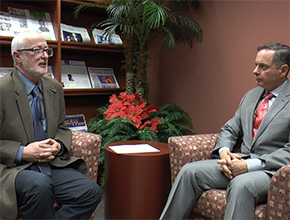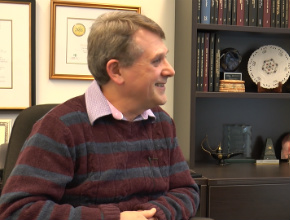Related articles
Mosleh W, Farkouh ME. Balancing cardiovascular and gastrointestinal risks in patients with osteoarthritis receiving nonsteroidal anti-inflammatory drugs. A summary of guidelines from an international expert group. Pol Arch Med Wewn. 2016 Feb 4;126(1-2):68-75. PubMed PMID: 26810416.Roman Jaeschke: Gordon, I have just learned that you were involved in a recent discussion on the use of aspirin in primary prevention and it keeps coming up over and over. I wonder, what are your comments on the use of aspirin in primary prevention over the years and now?
Gordon Guyatt: There are some decisions where it is clear that the benefits outweigh the risks and everyone should do it, or the risks outweigh the benefits and nobody should do it. That is not the case with aspirin in primary prevention – it is what we call a value and preference decision, in that some folks presented with the evidence would say “Yes, I will use aspirin,” and other folks would very reasonably say “No.” The magnitude of the effects is very small. When you are talking about primary prevention, you are talking about people with low risk, and to get any sort of appreciable benefit, it takes over an order of 5 or perhaps 10 years.
You might say the decision is not very important, because whether you do it or you do not do it, the differences are very small, so I think that would be the starting point. There is a small reduction in cardiovascular risk associated with aspirin, but there is also definitely an increase in bleeding associated with aspirin, so it depends on that trade off. Historically, we tended to say, “Let’s do it for the people at higher cardiovascular risk because they get the benefits.” That is usually reasonable and that is what I was just arguing for with the treatment of hypertension. But in this case, the higher your cardiovascular risk, the higher your bleeding risk. So in fact, as your benefits go up as you become higher risk, your harm goes up as well. The trade off is not clearly different from those lower- or higher-risk individuals, depending on how you feel about bleeding versus reduction in your cardiovascular risk. There may be an overall reduction in mortality, but it is again small and we would call it only moderate quality of evidence. It is not clear – maybe you are getting this mortality reduction, but certainly it is not a sure thing.
The final issue is that some evidence suggests a benefit in cancer incidence. Again, though, there is only moderate-quality and in some cases low-quality evidence.
It is a value- and preference-sensitive decision, a close call. I take aspirin.
RJ: Thank you. That is very useful.
 English
English
 Español
Español
 українська
українська







